Laughing at Life
Brief Synopsis
Cast & Crew
Ford Beebe
Victor Mclaglen
Conchita Montenegro
William Boyd
Lois Wilson
Henry B. Walthall
Film Details
Technical Specs

Synopsis
In 1913, Dennis P. McHale, a civil engineer in the Panama Canal Zone, enjoys a life where he makes his own rules and refuses to take orders from others. When federal agent Mason tries to arrest him for gunrunning, McHale leaves his wife Mary and small son with a check for the balance of his bank account and a promise to send for them soon. In 1914, after being chased in Tahiti, McHale writes to Mary from Shanghai, where he is known as Burke, that he will soon send for her, but when he learns of a jungle treasure, he tears up the letter. In 1917, McHale, in a Calgary hospital, reads a letter from his son asking for him, as Mary has since died. Returning to find his home burned, McHale is unable to locate his boy. In 1918, McHale, now called Captain Easter, is recognized by Mason as he leads an advance in France contrary to orders. Although he is court-martialed and imprisoned for three years, Easter is about to be awarded a medal for bravery, when the warden finds his cell empty. In 1933, Easter is the military leader of a revolt led by Don Flavio against Presidente Valenzuela in the South American republic of Alturas. Mason, sent by the U.S. State Department, arranges with gunrunners to sell Easter arms so that evidence against him can be gathered. After Easter befriends a young American couple, civil engineer Pat Collins and his girl friend Alice Lawton, Pat helps Easter escape being apprehended by Mason. Driven underground because of a reward for his capture, Easter trains Pat to run the operation. After Mason presents Alice with evidence that Pat is actually Easter's son, Alice shows the document to Easter, hoping that he will encourage Pat to quit the dangerous work. Easter, however, is overjoyed at the "fun" he and his son will now have working together. Meanwhile, Don Flavio, ready to strike against the president, plans to have the two "gringos" captured as leaders of the revolt. Easter, learning of Don Flavio's betrayal, tries to make Pat leave him by insulting Pat's "father," whom Easter says he knew. Pat slugs Easter, to Easter's delight, but Easter is knocked cold by Panchita, a cafe dancer whom he has snubbed, and Pat is arrested. Revived, Easter climbs roofs and enters the president's room, where he makes a deal to turn over Don Flavio by daylight for the removal of the price on his own head. Easter leads Don Flavio's troops to believe that they have been betrayed, then abducts Don Flavio and, as Pat is about to be shot by a firing squad, rescues him. Mason is mistakenly arrested, and Easter reintroduces himself to Pat as his father. Putting Pat into Alice's car, he promises to see them in San Francisco.

Director
Ford Beebe
Cast

Victor Mclaglen

Conchita Montenegro

William Boyd
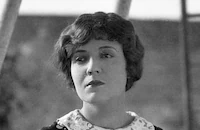
Lois Wilson

Henry B. Walthall

Regis Toomey

Ruth Hall

Guinn Williams
Dewey Robinson
Ivan Lebedeff
Mathilde Comont
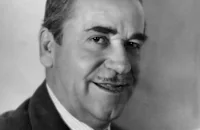
Noah Beery

J. Farrell Macdonald

Tully Marshall
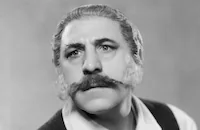
Henry Armetta
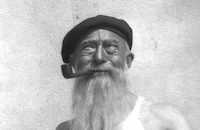
Edmund Breese

Frankie Darro
Otis Harlan
Buster Phelps
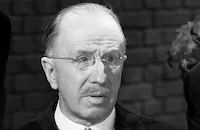
Arthur Hoyt
Pat O'malley
William Desmond
Lloyd Whitlock
Philo Mccullough
George Humbert
Crew
Ford Beebe
Howard Burrows
Ione Caine
Prescott Chaplin
Earl Crain
Thomas Dugan
Tom Galligan
Dal Glesch
Joseph Kane
Terry Kellum
Nat Levine
Joe Lykins
Ernie Miller
William Perry
Paul Ries
Ray Snyder
Monty Steadman
Charles Stevens
George Webster
Lee Zahler

Film Details
Technical Specs

Quotes
Trivia
Notes
The print viewed was missing the opening credits which probably listed the presenter, title and production company. The working titles of this film were I'll Be Hanged if I Do and The Gringo. William Boyd was called "William (Stage) Boyd" in reviews to distinguish him from the William Boyd who later became known as Hopalong Cassidy.












